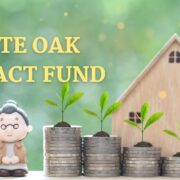Understanding the Essence of Political Acumen
In the realm of leadership,Political Acumen Meaning political acumen stands as a fundamental attribute that distinguishes effective leaders from the rest. But what exactly does political acumen entail? In this comprehensive guide, we will delve deep into the meaning of political acumen, its critical importance in leadership roles, and how it shapes successful outcomes in the political landscape.
1: Defining Political Acumen Meaning
Political acumen encompasses the ability to understand, navigate, and leverage the complexities of political environments effectively. It goes beyond mere political knowledge or skills; rather, it involves a keen awareness of power dynamics, interpersonal relationships, and strategic decision-making within political contexts.
2: The Significance of Political Acumen in Leadership
Political Acumen Meaning Effective leadership often requires more than just technical expertise or managerial proficiency. Leaders must possess the astuteness to maneuver through political challenges, negotiate conflicting interests, and build alliances to advance organizational goals. Political acumen empowers leaders to navigate through intricate political landscapes, make informed decisions, and drive change amidst uncertainty.
3: Key Components of Political Acumen
Political Acumen Meaning Political acumen comprises several essential components that contribute to its efficacy in leadership:
- 1. Strategic Thinking: The ability to anticipate future challenges, identify opportunities, and devise long-term plans that align with organizational objectives.
- 2. Interpersonal Skills: Strong communication, empathy, and relationship-building capabilities are crucial for fostering collaboration and influencing stakeholders effectively.
- 3. Emotional Intelligence: Understanding and managing emotions, both one’s own and others’, plays a pivotal role in building trust, resolving conflicts, and inspiring confidence among team members.
- 4. Adaptability: Flexibility and agility in responding to dynamic political environments and adjusting strategies accordingly.
- 5. Ethical Integrity: Upholding ethical principles and moral values while navigating through political complexities ensures credibility and trustworthiness in leadership.
4: Cultivating Political Acumen in Leadership
Political Acumen Meaning Developing political acumen is a continuous process that requires deliberate effort and practice. Here are some strategies to cultivate political acumen in leadership roles:
- 1. Stay Informed: Keep abreast of current affairs, political trends, and developments within your industry or sector.
- 2. Political Acumen Meaning Build Relationships: Forge meaningful connections with key stakeholders, influencers, and decision-makers to garner support and build alliances.
- 3. Develop Emotional Intelligence: Enhance self-awareness, empathy, and social skills to navigate through interpersonal dynamics effectively.
- 4. Think Strategically: Adopt a strategic mindset and analyze situations from multiple perspectives to anticipate challenges and identify opportunities.
- 5. Seek Feedback: Solicit feedback from peers, mentors, and team members to gain insights into your leadership style and areas for improvement.
5: The Role of Political Acumen in Organizational Success
Organizations thrive when their leaders possess strong political acumen. By effectively navigating through political landscapes, leaders can:
Drive Change: Influence organizational culture, policies, and practices to align with strategic objectives.
Build Coalitions: Form alliances and partnerships with internal and external stakeholders to achieve common goals.
Mitigate Risks: Anticipate potential challenges and devise proactive strategies to mitigate risks and seize opportunities.
Foster Innovation: Create an environment conducive to innovation, collaboration, and creativity by fostering trust and openness among team members.
6: Challenges in Developing Political Acumen
- While political acumen is a valuable skill, it is not without its challenges. Some common obstacles in developing political acumen include:
- Overcoming Resistance: Resistance to change or opposing viewpoints may hinder efforts to build consensus and garner support.
- Managing Conflicting Interests: Balancing competing interests and priorities requires finesse and diplomacy to avoid conflicts and maintain harmony.
- Navigating Organizational Politics: Negotiating through internal politics and power struggles can be daunting, especially in hierarchical structures.
- Handling Ethical Dilemmas: Upholding ethical standards amidst political pressures and temptations demands moral courage and integrity.
7: Case Studies: Political Acumen in Action
- To illustrate the practical implications of political acumen in leadership, let’s examine two case studies:
- Case Study 1: Nelson Mandela
- As a prominent leader in the fight against apartheid in South Africa, Nelson Mandela demonstrated exceptional political acumen. He skillfully navigated through complex political negotiations, built coalitions across racial divides, and led the country towards reconciliation and democracy.
- Case Study 2: Angela Merkel
- Angela Merkel, the former Chancellor of Germany, exemplified political acumen in her leadership style. She adeptly managed international relations, forged strategic alliances within the European Union, and steered Germany through economic challenges and geopolitical crises.
8: Conclusion
Political Acumen Meaning is a cornerstone of effective leadership, enabling leaders to navigate through political landscapes, drive change, and achieve organizational success. By cultivating political acumen, leaders can enhance their strategic thinking, interpersonal skills, and adaptability, thus empowering themselves to lead with confidence and influence.
FAQs (Frequently Asked Questions)
1. What is the difference between political acumen and political skill?
Political Acumen Meaning Political acumen refers to the ability to understand and navigate political environments effectively, whereas political skill encompasses the proficiency in using political tactics and strategies to achieve personal or organizational goals.
2. How can I assess my level of political acumen?
Self-reflection, feedback from peers and mentors, and assessment tools such as 360-degree feedback surveys can help you evaluate your political acumen and identify areas for improvement.
3. Is political acumen only relevant in government or political settings?
Political Acumen Meaning No, political acumen is applicable in various contexts, including business, nonprofit organizations, and community leadership roles, where navigating through interpersonal dynamics and power structures is essential for success.
4. Can political acumen be learned, or is it an innate trait?
While some individuals may naturally possess certain traits associated with political acumen, such as emotional intelligence or strategic thinking, political acumen can be developed and enhanced through education, training, and practical experience.
5. How can organizations foster a culture of political acumen among their leaders?
Political Acumen Meaning Organizations can promote political acumen by providing leadership development programs, fostering a culture of openness and collaboration, and recognizing and rewarding individuals who demonstrate political astuteness in their roles.
Also read : Back in Business Meaning Explored: Revitalise Your Journey with 10 Inspirational Insights












